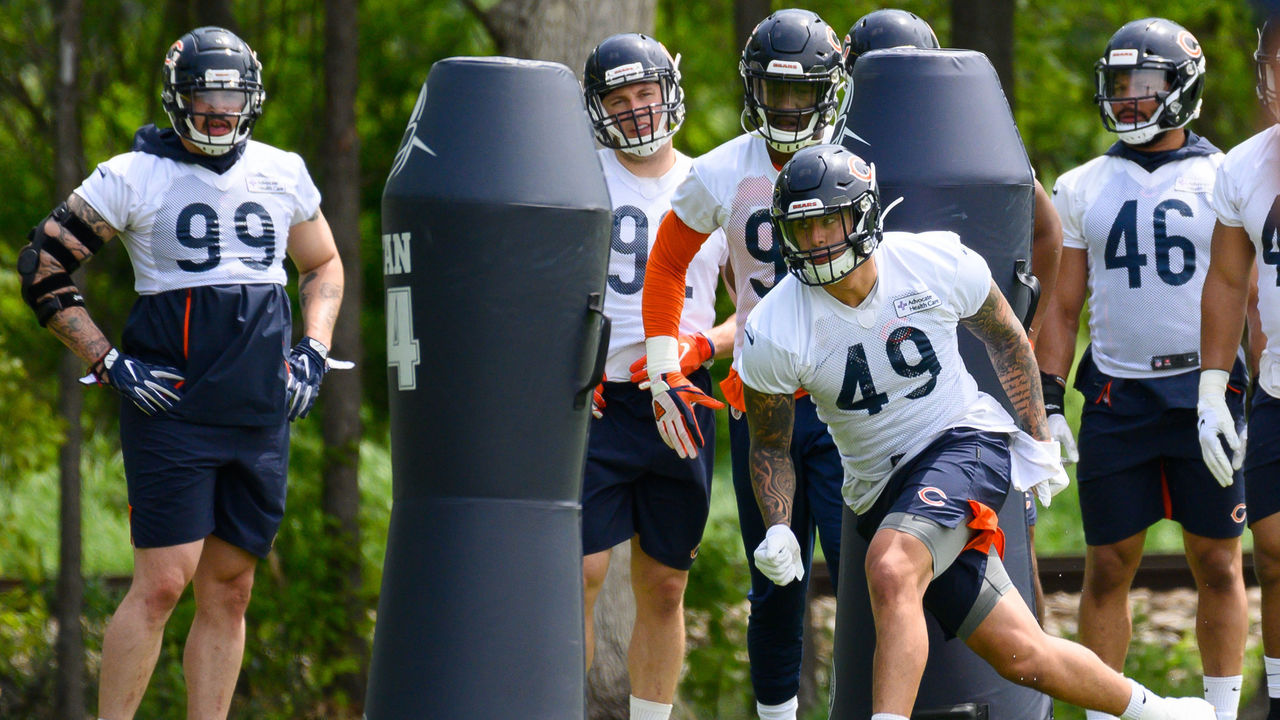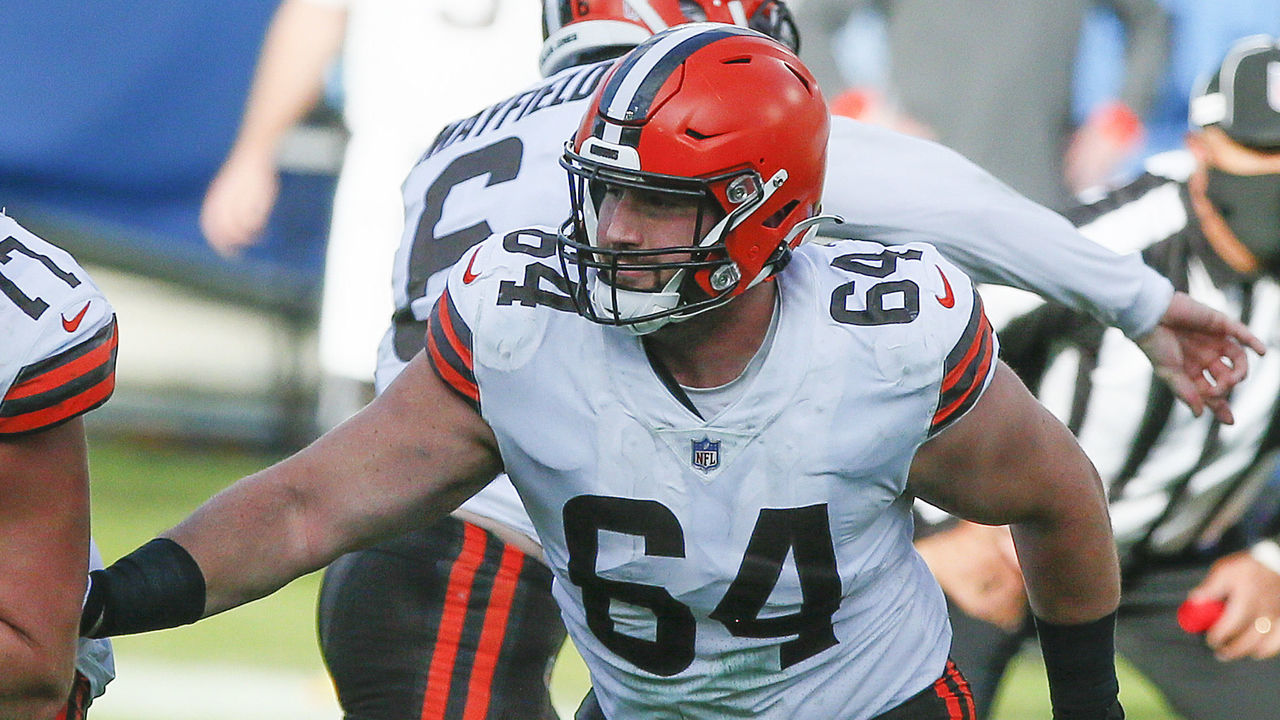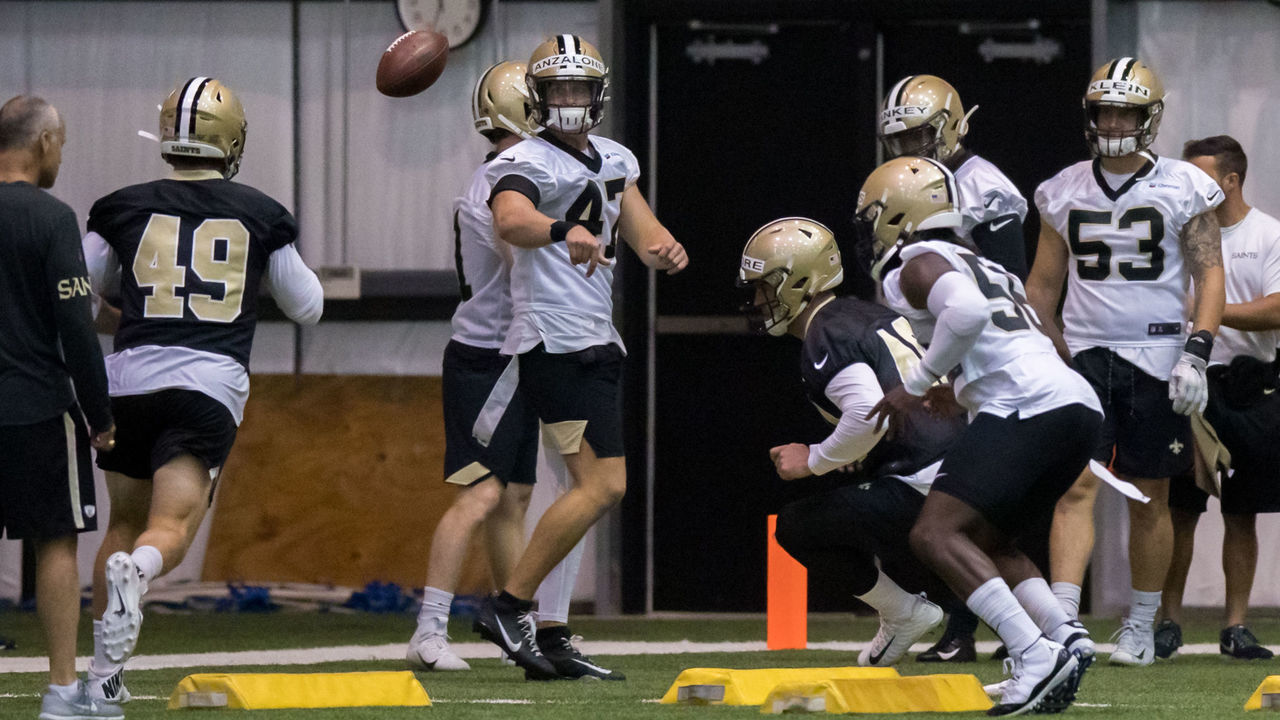The push for NFL players to skip OTAs is about more than COVID-19
With more than a dozen teams now opting out of offseason workouts to some extent, and the NFL Players Association recommending that players skip any in-person activities until training camp, it's important to stress exactly what is going on here, and what it all means.
With the exception of a three-day minicamp that can take place between May 24 and June 18, the league's entire offseason program is voluntary. Wait, hang on, let's be perfectly clear. According to the collective bargaining agreement that governs the relationship between management and players, these activities are "strictly voluntary." This means, despite a lot of hand-wringing in the press about the potential for competitive imbalances and divergent priorities among different groups of players, teams can't do anything to those who choose not to show up. Like, literally nothing.
This is not some trivial matter. What's at stake involves honoring a contract, which ought to be a pretty straightforward principle of labor relations. The players, through their union, successfully bargained for these workplace conditions as part of the 2011 CBA, and those provisions are also a feature of the pact signed with the league last year. The 2020 offseason took place virtually due to the pandemic, with no noticeable effect on the on-field product. The pandemic's continued existence has simply presented the NFLPA with the opportunity to remind its members of what they have already earned.
Last year was an exception, of course, but the NFL's elastic definition of the word "voluntary" tends to pop up every spring whenever a player with some name recognition elects not to attend organized team activities (OTAs). This is true whether a player's absence is related to a contract squabble or just because the player would rather not spend April, May, and early June shuffling around the team facility. Then, every September, all that OTA attendance-taking is forgotten.
To be clear: Absences from OTAs are not holdouts, which pertain to mandatory activities like training camp and in-season practices and meetings. This is an often-overlooked distinction, but it's still a significant one.
 Icon Sportswire / Getty Images
Icon Sportswire / Getty ImagesNonetheless, coverage of the way players choose to approach OTAs frequently frames the issue around team loyalty, or the potential for bad influences, or the desires of coaches who, if the rules allowed for it, would just as soon schedule full-pad two-a-days every day between the Super Bowl and Labor Day. But the specific point here is that the rules don't allow for it. The players made sure of that by specifically negotiating this into reality.
No, really. It says so in Article 21-1 of the CBA:
No player shall be required to attend or participate in any offseason workout program or classroom instruction of a Club other than as provided in Article 22. Any other Club offseason workout programs and classroom instruction sessions shall be strictly voluntary and shall take place in the manner and time period set forth in this Article.
(Article 22, for those wondering, refers to the three-day minicamps that often take place in June. Those are mandatory.)
Not only that, but coaches and other team officials are forbidden from so much as suggesting to players that voluntary workouts aren't voluntary. Teams also can't punish players or hold anything against them in any way for skipping this stuff. Seriously. It's all right there in Article 21-5(a):
No Club official may indicate to a player that the Club's offseason workout program or classroom instruction is not voluntary (or that a player's failure to participate in a workout program or classroom instruction will result in the player's failure to make the Club or result in any other adverse consequences affecting his working conditions).
The CBA even contains an entire provision about enforcement. And guess what? Commissioner Roger Goodell can punish any coach or team official who violates these rules. Take a look at Article 21-8(a):
The head coach and the Club, who are jointly responsible for any conduct in violation of Sections 1, 2, 5 or 6 of this Article ... shall be subject to a fine to be determined by the Commissioner, which fine(s) shall not be reimbursable by the Club or any other person. The NFLPA and any player involved in any such violation shall each have the right to enforce Sections, 1, 2, 5 or 6 of this Article ... through an expedited arbitration proceeding before the Impartial Arbitrator. Any head coach or Club that is the subject of a proceeding under this Section shall have the right to participate in the proceeding and to present a defense.
 Frederick Breedon / Getty Images
Frederick Breedon / Getty ImagesThe players' union brokered all this in the interests of workplace conditions and health and safety - issues on which the league does not have a great track record. That's to say nothing of the way the NFL has often weaponized and exploited specific parts of the CBA against its workforce. In a column posted earlier this month on the NFLPA's website, Cleveland Browns center and NFLPA president JC Tretter noted that injuries were way down in 2020, partly because of the work rules in place during last spring's virtual offseason. With the NFL having pulled the trigger on adding a 17th game to the regular season, this is no small thing.
In 2021 and beyond, is it really that radical to reimagine which parts of a job might be better done remotely? The risk for the players is that any injuries sustained away from the facility won't be considered football-related and protected as such, though the players don't seem too concerned about that. The same goes for qualms about potential competitive inequities. And when it comes to OTA absences, the interests of unproven or marginal players don't closely align with those of high draft picks and established veterans. But how many of those unproven or marginal players are aware that their decision cannot be held against them?
Also, there are players - more than 200, according to one estimate - with substantial bonuses worked into their contracts for being present for offseason workouts. But the NFLPA has offered a recommendation: Pro Football Talk's Mike Florio reported that the union wouldn't push teams with a lot of players with workout bonuses, like the Buffalo Bills and Green Bay Packers, to join the effort to avoid OTAs. That kind of flexibility is warranted, and those dudes should show up to collect their money.
 Icon Sportswire / Getty Images
Icon Sportswire / Getty ImagesSome people have read this far and are undoubtedly thinking that NFL players should shut up and do whatever they're told because they're pampered and play a game. But that's not the way the pro football industry is designed to function. The players have a say in the way this business operates. Just as they did when they worked with the league to establish the pandemic protocols that allowed a full 2020 season to take place, the players are again having their say. This time, it just so happens to involve one of their tangible victories at the bargaining table.
Long before the pandemic, at a previous job, I called for all NFL players to skip OTAs. I did so because the rules are clear that those players cannot be shamed or manipulated into doing more than they're contractually obligated as a minimum condition of their employment. Much in this world has changed since then, but that hasn't.
Dom Cosentino is a senior features writer at theScore.
Copyright (C) 2021 Score Media Ventures Inc. All rights reserved. Certain content reproduced under license.